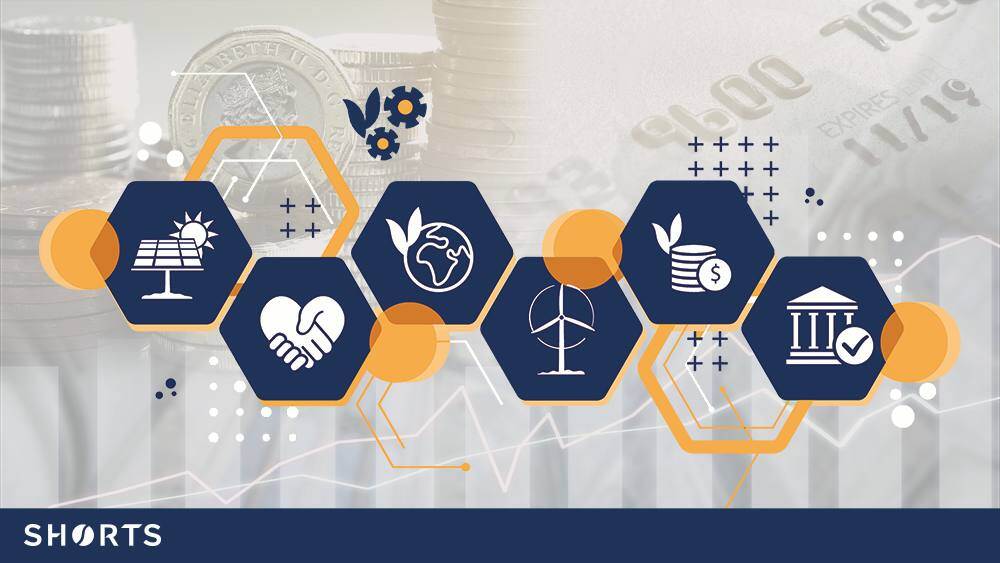
ESG (Environmental, Social, and Governance) has become a major factor for companies operating in the financial services sector of the UK. ESG criteria inform investments, influence corporate decision making and shape regulatory frameworks, and there is no sign of this emphasis going away any time soon.
Here is a brief introduction to ESG for financial services operating in the UK.
The origins of ESG for financial services
ESG isn't entirely new. It evolved from socially responsible investing (SRI) practices during the 1960s and 1970s, which focused on reducing investments in industries like tobacco and firearms. Over time, the approach has broadened to include proactive investment in companies that strive to make a positive environmental and social impact on the world.
Why is ESG becoming a bigger deal?
In the UK, the shift towards ESG has been driven by a combination of regulatory changes and market demand. The Financial Conduct Authority (FCA) has been pivotal in promoting transparency and accountability in ESG reporting.
Investor appetite for ESG-compliant investments has also grown. People are more conscious about where their money is going and want to support businesses that are not just profitable but also ethical and sustainable.
ESG for financial services – Examples
ESG stands for Environmental, Social, and Governance. These three pillars represent a framework for assessing the sustainability and ethical impact of an investment in a company or business. For financial services, this could include the following:
| Environmental | Social | Governance |
| Assessing the company’s carbon footprint to better tackle climate change | Promoting diversity, equity and inclusion (DEI) within the company. | Having robust corporate governance standards in place |
| Reducing carbon emissions | Engaging with and supporting the local community | Anti-corruption measures |
| Investing in renewable energy sources like wind, solar or hydroelectric power | Charitable contributions, volunteering and support | Fair competition policies |
| Management and responsible disposal of waste | Involvement in community development projects | Transparency in reporting and operations |
| Efficient use of resources and recycling | Providing fair wages | Having good experience in ESG on the board of directors |
| Ensuring safe working conditions | Having good experience in ESG on the board of directors | |
| Providing staff with opportunities for personal and professional growth | Tax transparency |
ESG and the FCA (Financial Conduct Authority)
The FCA (Financial Conduct Authority) has a strong and growing focus on ESG factors for financial services firms. They want to encourage the financial sector to drive positive change, particularly through a shift towards a net-zero economy.
The FCA also values clear and truthful communication about ethical investments to prevent greenwashing. Consumers and investors need to be confident that firms are indeed acting upon their ESG promises.
What is Greenwashing?
Greenwashing refers to when companies use deceptive marketing tactics to make people think that their products or practices are environmentally friendly when they actually aren't. This is done to take advantage of consumers' interest in sustainability without making real changes.
Examples of greenwashing include vague or unsubstantiated claims, employing inaccurate imagery to create a perception of greater sustainability, or highlighting partial truths and not providing the big picture on a product’s overall environmental impact.
The FCA’s “Anti-Greenwashing” Rule
In 2024, the FCA introduced a new rule that aims to prevent greenwashing. This rule applies to all communications from FCA-authorised firms in the UK about their products and services that mention environmental and/or social (sustainable) characteristics.
We introduced the anti-greenwashing rule to clarify to firms that sustainability-related claims about their products and services must be fair, clear and not misleading. It gives us an explicit rule on which to challenge firms if we consider they are making misleading sustainability-related claims.
How Financial Services can implement ESG
The first step for any financial services company looking to incorporate ESG principles is to create a robust ESG strategy. This includes setting achievable goals that align with the broader ESG criteria. This strategy should cover environmental impacts, social responsibility, and governance practices wherever possible.
General operations and practices
- A thorough evaluation of the company’s operations will help uncover both areas that already align with ESG principles, as well as those requiring improvement.
- Engaging with stakeholders, such as employees, clients, investors and members of the community, will help you understand their ESG priorities and expectations.
- Come up with specific, measurable, attainable, relevant and time-bound (SMART) objectives to help you measure ESG performance going forward.
- Develop a detailed action plan outlining the steps needed to achieve these goals, including resource allocation, timelines, and responsible parties.
Integrating ESG into investment processes
- Implement a screening process to evaluate potential investments against ESG criteria
- Conduct thorough due diligence to assess the ESG risks and opportunities associated with potential investments.
- Incorporate ESG considerations into financial models and decision-making frameworks.
- Engage with investee companies to encourage better ESG practices on their part.
Financial services firms can contribute to a more sustainable and ethical finance industry by implementing ESG practices. This process requires genuine commitment, motivated collaboration, and ongoing review. ESG is a field that is constantly evolving, and it’s essential to stay updated with the latest trends, regulations, and best practices.

Matthew Lewis
Matthew is a Senior Audit & Accounts Manager at Shorts. He is a Chartered Certified Accountant with experience with Big 4 and Top 10 firms. His experience includes audit and financial reporting, across a wide range of businesses and sectors.
View my articlesTags: ESG
